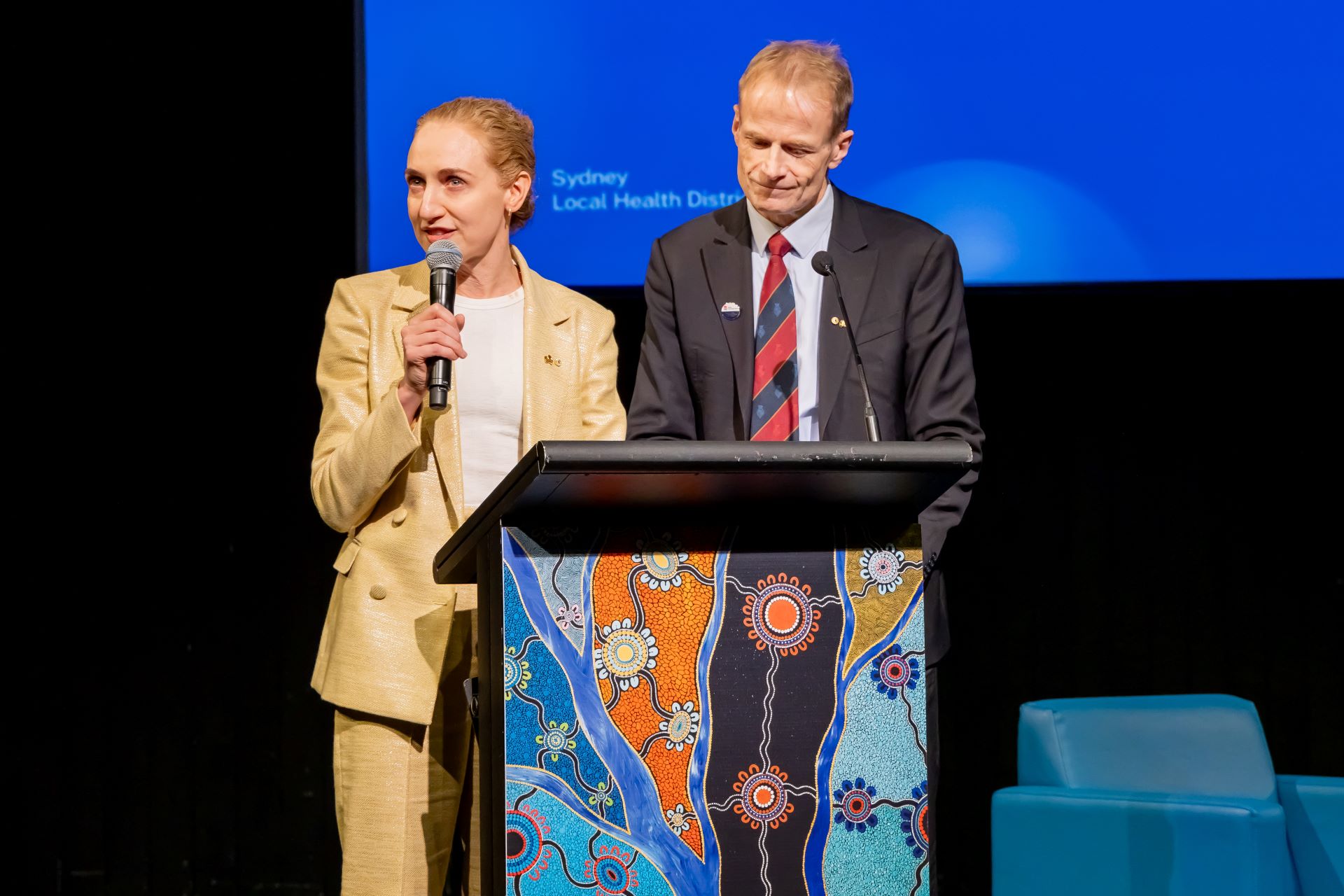
How hope drives innovation
Hope is at the heart of all scientific breakthroughs, argue Professor Georgina Long and Professor Richard Scolyer.

Hope has played a key role in the pioneering work of the 2024 Australians of the Year and co-medical directors of the Melanoma Institute Professor Georgina Long AO and Professor Richard Scolyer AO.
In a presentation to Sydney Innovation Week, they spoke of the role hope plays in scientific breakthroughs and in their own groundbreaking work in the treatment of melanoma.
Georgina and Richard have long-standing ties with Sydney Local Health District including as members of the Sydney Research Council.
Richard is a senior staff specialist with the RPA Tissue Pathology and Diagnostic Oncology Department, where he first joined as a registrar in 1998 and among his many national and international accolades, was awarded the RPA Research Medal in 2016.
“Hope is an intrinsic and integral part of science,” Richard said. “Hope empowers us to take action ... Hope is itself an innovation strategy, a combination of desire and planning. Innovation cannot succeed without hope.”
Richard’s diagnosis a year ago with stage 4 glioblastoma, an incurable brain cancer, prompted Georgina to ponder whether she could use her knowledge of immunotherapy in melanoma to treat Richard.
As Richard describes it, his cancer is incurable - no one survives it. Standard treatment is surgery followed by an intense course of radiotherapy and chemotherapy.
Together, Georgina and Richard have helped pioneer melanoma treatments that have broken new ground, saving thousands of lives.
Using immunotherapy to harness the body's immune system to fight cancer cells has been a game-changer. First tested and adopted as a treatment for melanoma, it is now the most widely used drug therapy in lung cancer, kidney cancer, head and neck cancer.
Georgina explained that melanoma used to be described as “the orphan cancer”. Now, if detected early, at least 90% of melanoma patients will be cured by simply surgically removing the melanoma on the skin.
Now, thanks to research, including immunotherapy breakthroughs, more than 50% of people with advanced melanoma are effectively cured.
Georgina proposed immunotherapy to Richard, and they applied their lessons in treating melanoma to develop a treatment for his brain cancer. It was a world first therapeutic approach.
“Hope is a constant in science and has always been a constant for us, from conceptualisation to cure,” she said.
“As a patient-facing clinician, I absolutely love being able to now sit face-to-face with my melanoma patients and share how most of them will likely be able to be helped with our therapies.
“This just was not the case 10 to 15 years ago. I'm driven by hope for my neuro-oncology colleagues to have this experience with their glioblastoma patients one day, and eventually every single oncologist in the world.”
It's still too early to tell whether the treatment Richard received is effective but recent scans showed no evidence of the cancer’s recurrence.
“I might survive and beat the unbeatable,” he said. “And in doing so, we will massively impact the whole brain cancer field. At worst, I'll leave a legacy of increased scientific knowledge for the benefit of future brain cancer patients.”
Despite huge steps forward with some cancers, Georgina said that they know more cancers could be cured and says it’s time the cancer research field thought courageously and challenged the status quo.
In finishing, Richard said, “No matter what life throws at you, there is hope. And hope, in particular, lies with the innovators. Be bold, be brave, and work together. Seek out opportunities to contribute, to participate and to action.”